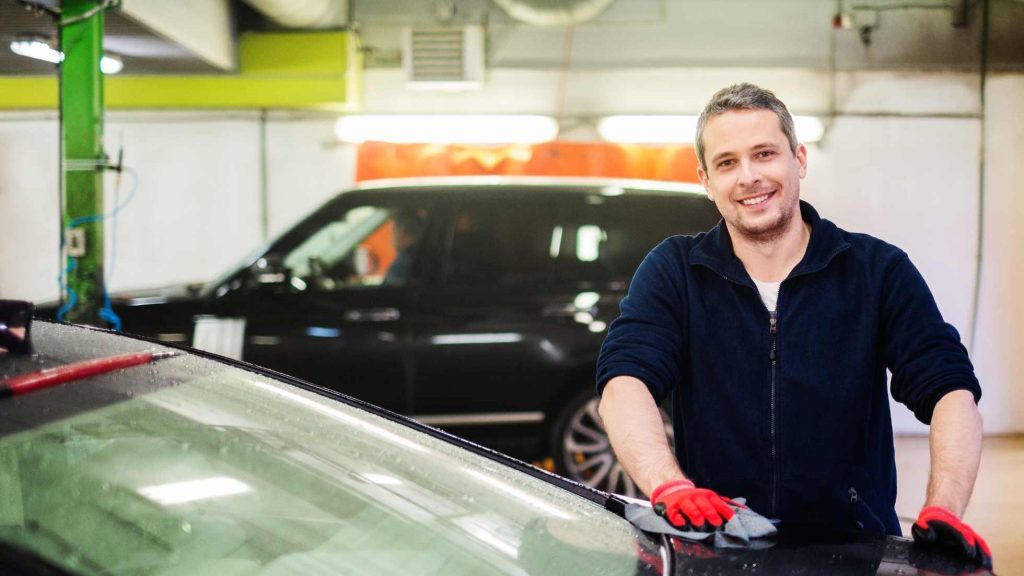Vehicle ownership comes with its fair share of joys and responsibilities. While we often take pleasure in the freedom and convenience that our cars provide, we also need to protect our investments. One way to safeguard the exterior of your vehicle is by investing in Paint Protection Film (PPF). PPF is a transparent, durable film applied to your vehicle’s exterior to shield it from scratches, chips, and environmental damage. But before you jump into getting PPF installed, it’s crucial to understand the cost implications.
In this comprehensive guide, we’ll explore the factors that influence the cost of full PPF installation for vehicles, helping you make an informed decision.
Table of Contents
Factors Affecting PPF Installation Costs
- Vehicle Type
The size and complexity of your vehicle significantly impact the cost of PPF installation. Larger vehicles, like SUVs and trucks, generally require more film material and labor hours for installation, resulting in higher costs compared to compact cars.
- Film Quality
PPF films come in various quality levels, from basic to premium. The cost varies depending on the brand, thickness, and performance characteristics of the film. High-quality films, often referred to as “self-healing” or “hydrophobic,” are more expensive but offer enhanced protection and longevity.
- Coverage Area
The extent of coverage you choose affects the overall cost. Full-body PPF installation covers all painted surfaces, including the hood, fenders, bumpers, mirrors, doors, and more. Partial or custom installations, like protecting only the front end, are more affordable.
- Labor Costs
Labor charges for PPF installation are influenced by the complexity of your vehicle’s design, the expertise of the installer, and the time required for precision application. Skilled technicians often charge higher rates for their services.
- Location
Geographic location plays a role in pricing due to variations in labor rates, competition among installers, and local demand. Urban areas tend to have higher costs compared to rural locations.
- Warranty
Most reputable PPF installers offer warranties with their services. Longer and more comprehensive warranties can add to the installation cost but provide peace of mind and protection against potential issues.
Average Cost Ranges
The cost of full PPF installation for vehicles can vary widely, but here are some approximate price ranges:
- Compact Cars: $1,500 to $2,500
- Mid-Size Cars: $2,000 to $3,000
- SUVs and Trucks: $2,500 to $4,000
- Luxury and Exotic Cars: $3,000 to $6,000 or more
It’s important to note that these are ballpark figures, and your actual cost may fall outside these ranges based on the factors mentioned earlier.
Benefits of Full PPF Installation
Understanding the cost of full PPF installation is essential, but it’s equally crucial to recognize the benefits:
- Paint Protection: PPF shields your vehicle’s paint from stone chips, road debris, scratches, and environmental contaminants, preserving its resale value.
- Enhanced Appearance: A well-maintained PPF keeps your vehicle looking newer for longer, with a glossy finish that’s easy to clean and maintain.
- Self-Healing: Premium PPFs often have self-healing properties, which means minor scratches disappear when exposed to heat.
- UV Protection: PPF blocks harmful UV rays, preventing paint fading and damage to the vehicle’s interior.
- Peace of Mind: With PPF, you can drive with confidence, knowing your vehicle is protected against common road hazards.
Conclusion
Investing in full PPF installation for your vehicle is a wise decision to protect your valuable asset. While the cost may seem significant, it’s essential to consider the long-term benefits and protection it offers. To get an accurate estimate for your specific vehicle, consult with professional PPF installers in your area. Remember, quality and expertise are paramount when choosing an installer. By understanding the factors influencing costs and weighing the advantages, you can make an informed choice that ensures your vehicle stays in pristine condition for years to come.






Comments are closed for this post.